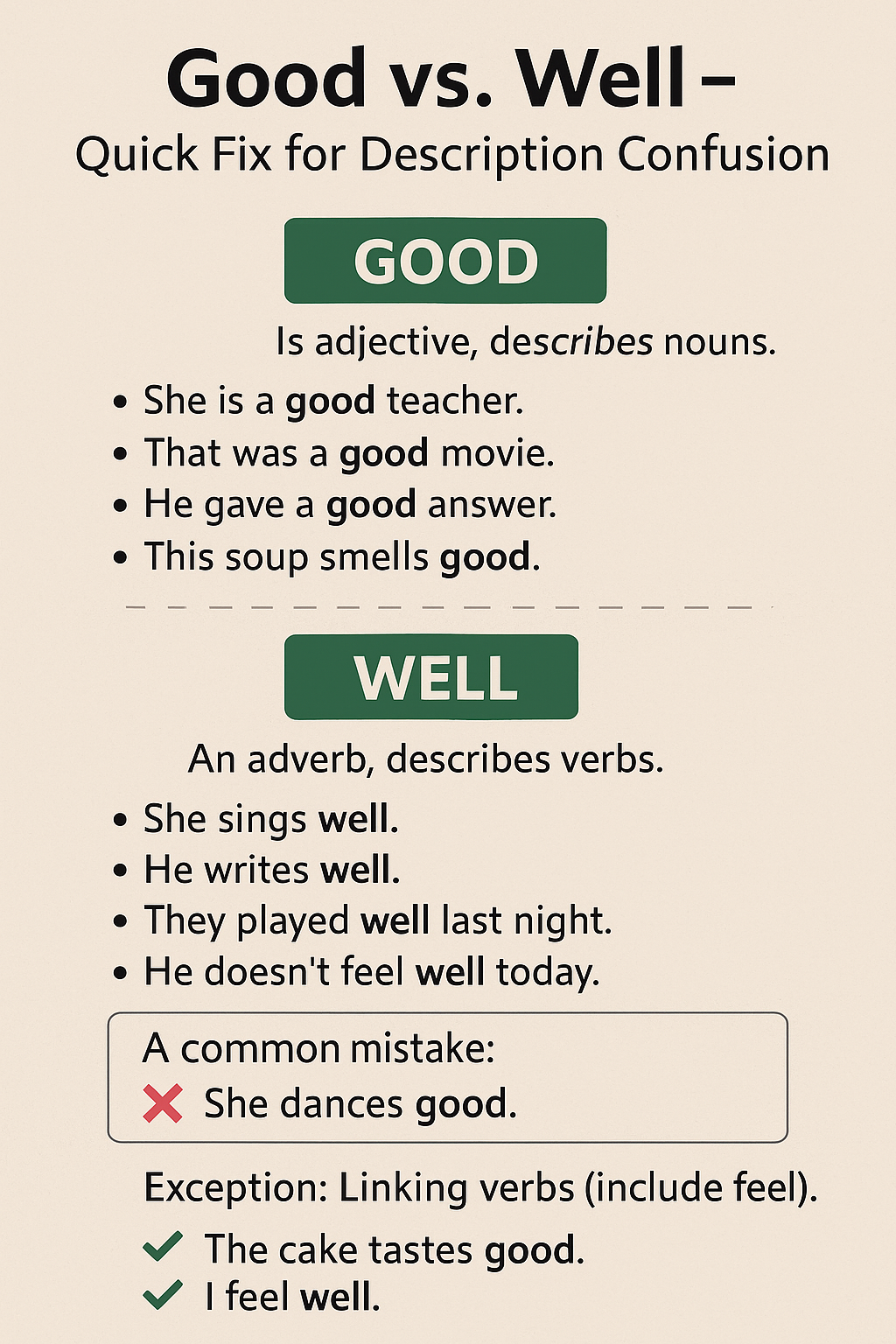Good vs Well-Grammar Puzzle Solved-48
Many learners confuse good and well, especially when describing how someone performs or feels. Although both words sound similar and often appear in the same contexts, they serve different grammatical roles. Understanding the good vs well grammar rule will greatly improve clarity in your writing and speaking.
Good is an adjective. It describes nouns. Use it when you want to talk about someone’s character, a thing’s quality, or how something looks, smells, tastes, or sounds.
✅ She is a good teacher.
✅ That was a good movie.
✅ He gave a good answer.
✅ This soup smells good.
✅ You look good today.
Each time, “good” describes a person or thing. It answers what kind.
Well is usually an adverb. It describes how an action is done. Use it when referring to performance or health.
✅ She sings well.
✅ He writes well.
✅ They played well last night.
✅ He doesn’t feel well today.
✅ I can’t hear you well.
In the first three examples, “well” tells how the action was done. In the last two, “well” refers to health, which is the only time “well” acts like an adjective.
A common mistake is using “good” in place of “well”:
❌ She dances good.
✅ She dances well.
❌ He did good in the test.
✅ He did well in the test.
However, after linking verbs (like look, smell, taste, feel), we use “good,” not “well,” unless referring to health.
✅ The cake tastes good.
✅ You look good in that outfit.
✅ I feel good about this decision.
✅ I feel well (only if referring to health).
To apply the good vs well grammar rule, ask what the word is describing. If it describes a noun, use “good.” If it describes an action, use “well.” Practice this distinction regularly to write more accurately and sound more natural.

Subject-Verb Agreement: https://grammarpuzzlesolved.englishlitnotes.com/subject-verb-agreement-complete-rule/
For grammar lessons, visit ChatGPT to explore the platform and interact with the AI: https://chat.openai.com
Discover more from Grammar Puzzle Solved by Naeem Ullah Butt
Subscribe to get the latest posts sent to your email.